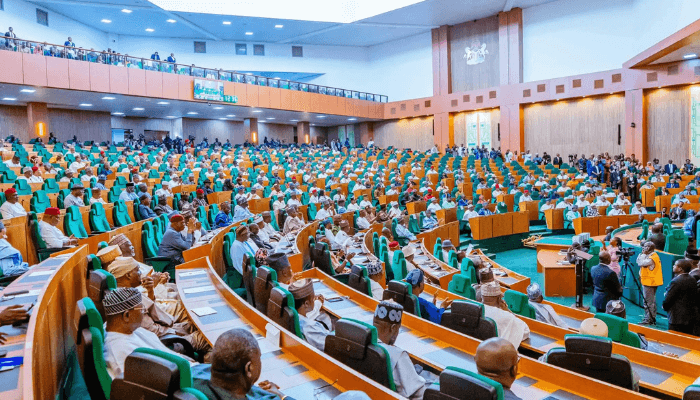Data integration, diaspora collaboration key to Nigeria’s economic transformation — House committee chair
Ahmed Munir, the Chairman of the House of Representatives Committee on Trade and Investment, has urged Nigerians to embrace homegrown innovation, full-scale digitisation, and data integration as key pathways to national economic revival and effective governance.
Speaking on Thursday at a policy dialogue held at the National Assembly Library in Abuja, the lawmaker said Nigeria must stop depending on imported ideas and begin to build sustainable, technology-driven systems that reflect the country’s realities.
“We should search for solutions from within,” he said. “The innovation we need to transform our economy must start here, with Nigerians who understand the challenges and are willing to create solutions for them.”
The Committee Chairman, who commended the innovative drive of Nigerians both at home and in the diaspora, emphasised that technology must be at the heart of every policy and developmental framework.
“You can see from the various presentations today that Nigerians, both here and abroad, are stepping up to the plate with innovations in technology and business,” he noted.
“We have to start prioritising these efforts because that’s where the future of our economy lies.”
He identified digitisation and data harmonisation as central to the country’s progress, explaining that duplication of government data and uncoordinated records have slowed national planning and budgeting.
“We need to ensure that all our agencies are not working in silos. Every citizen’s data should be captured from birth to death in one national database,” he stressed.
“When we have a reliable, unified data system, it becomes easier to prepare accurate budgets and channel resources where they are most needed.”
The lawmaker added that Nigeria already has working examples of digital efficiency that can be replicated nationally.
“We are not reinventing the wheel,” he said.
“If our banks have built reliable digital systems, and if INEC has achieved significant progress in its voter database, then we can scale those models. The question is how to take what works and make it function across government institutions at the national level.”
He also urged ministries, departments, and agencies to collaborate and share data, warning that continued fragmentation could hinder progress in governance, economic planning, and social welfare delivery.
“If every institution continues to build its own data system without alignment, we’ll keep duplicating efforts and wasting resources.
“We must think as one government, not as competing units,” he said.
Also speaking, Abiodun Odunuga, Founder and CEO of Bridge and Value, emphasised the role of the Nigerian diaspora in driving innovation and investment.
Odunuga, who has lived in Europe for a decade, said the diaspora community possesses vast social and financial capital that can strengthen Nigeria’s economy.
“The social and international capital we’ve built over the years can be leveraged for real impact,” Odunuga said. “Our mission is to connect these global partnerships with Nigerian institutions to create meaningful results.”
On attracting foreign investment, Odunuga acknowledged that trust remains a major barrier but maintained that transparency and shared success stories can change perceptions.
“Trust is a big hurdle,” he said. “That’s why we take potential investors to see success stories, European partners who have invested and are thriving in Nigeria. Seeing those results convinces others to take the leap.”
Read also: Reps launch probe into $850bn unrepatriated crude oil export proceeds
He further called for government-backed certification and traceability of agricultural products to enhance export quality and competitiveness, citing France’s model of geographical indication as an example.
“Every product that comes from our soil should be traceable,” he said. “Government must back this process with credible certification to ensure that Nigerian products meet international standards.”
Odunuga lauded recent progress by the Ministry of Communications, Innovation & Digital Economy, particularly in identity and data systems, but noted the need to consolidate various databases.
“Ten years ago, it was difficult to trace people. Today, with BVN and digital IDs, progress has been made,” he said. “But we still have too many identities: BVN, NIN, voter card. We must harmonise these into one central system.”
The session concluded with a consensus that Nigeria’s growth must be driven by innovation, data-driven governance, and deeper collaboration between government, the private sector, and the diaspora.
“If we get digitisation right, if we trust our innovators, and if we integrate our data, Nigeria will not only compete, we will lead,” the House Committee Chairman declared.

